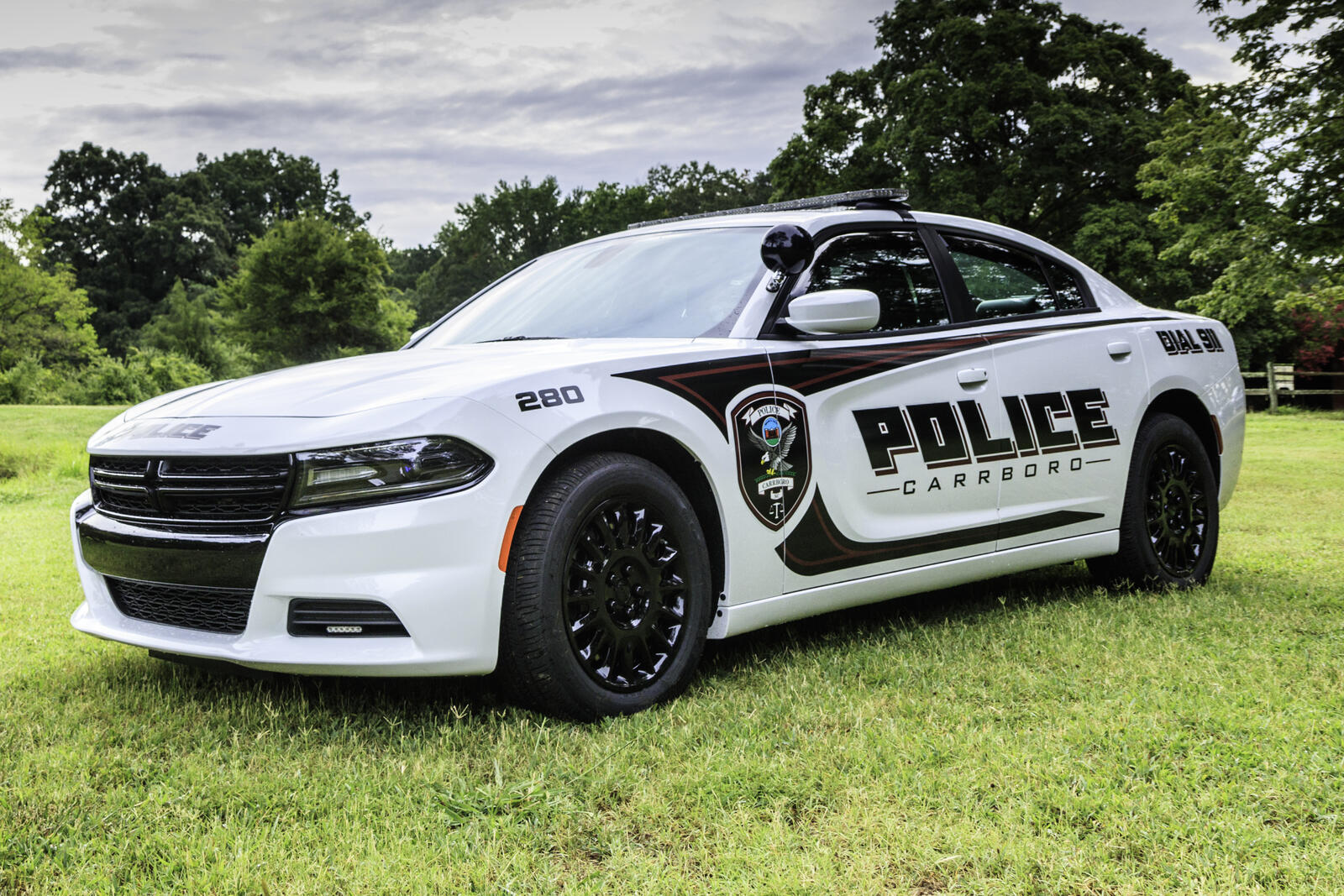A community forum with Carrboro Police Chief Walter Horton was originally planned as a response to public concerns about military tactics, weapons and gear used by law officers nationwide. But most of Monday night’s two-hour conversation at Town Hall was about racial profiling.
“The idea for this community conversation about policing came out of the events in Ferguson earlier this year, and specifically, actually, questions about militarization,” said Carrboro mayor Lydia Lavelle, addressing a packed Town Hall Board Room on Monday night.
“While that might be discussed somewhat tonight, we decided, and the chief did also, that it was time for a community conversation just about community policing in general.”
There were, indeed, questions from citizens to Carrboro Police Chief Walter Horton about the town’s participation in the 1033 program of The U.S. Department of Defense.
The conduct of Ferguson, MO police, and the combat gear they used to deal with protesters after a policeman shot and killed Michael Brown on Aug. 9, shone a national spotlight on the program, which supplies military surplus items to local law enforcement agencies.
The items range from boots and filing cabinets to tanks and grenade launchers.
Horton responded to questions about that.
“We are members of that program, but we haven’t actively participated in several, several years.”
Horton got a big laugh in the room when said he doesn’t think that Carrboro needs grenade launchers.
He added that the department buys its own weapons, and that those are the same weapons any citizen could purchase at Wal-Mart, or Dick’s Sporting Goods. In reality, he said, the 39 sworn officers of the department are outgunned.
Horton said the department was forced to re-evaluate its weapons policy after 26-year-old UNC law student Wendell Williamson randomly opened fire with an M-1 rifle along Henderson Street in Chapel Hill on January 26,1995, killing two people and wounding a few others.
Horton, a uniformed officer at the time, was in court in Chapel Hill that day, and he was one of the officers that returned fire on Williamson and brought him down. He said he still thanks the magnolia tree he was hiding behind for shielding him from one of Williamson’s bullets, which hit the tree near his head.
Before that incident, he said, rifles at the Carrboro Police Department had been locked up so long, they had started to rust. After that day, they were pulled out of storage.
But Carrboro resident Corey Edwards said he did not see the need for rifles, nor the protective jackets and shields displayed by police officers at the forum. When police are armed like that, he asked, then what is to prevent another Ferguson happening in Carrboro?
“This town doesn’t need that,” said Edwards. “It doesn’t need that. You said the guns were rusted. Let the guns rust. You don’t need it.”
Edwards also related a story of his wife being pulled over on Rogers Road while he was in the passenger seat, an experience that felt like racial profiling to him, given the circumstances.
He wasn’t the only person in the room to raise the issue, and Horton took some exception.
“We don’t racially profile,” said Horton. “To be honest with you, I kind of feel offended by that, because, being the first black chief – I know how it feels to grow up being a black male here. I’ve been walking, and had people cross the street. I’ve been in other places and looked at funny by the police.
“I know how that feels. So, I would not let that go on.”
Alderperson Michelle Johnson said she realized Horton was in a tough spot, but added that a conversation about racial profiling, when it comes to traffic stops and other interactions with police, needed to take place.
“Because racism exists, racial profiling exists,” said Johnson. “I don’t know if you feel like you’re in the position of having to answer for everyone’s behavior in your department,” said Johnson. “You probably do feel like that. And I feel like the conversation might shift if we just agree that racism is present, and that Carrboro is no different than any other place.”
James Williams, a public defender for Orange and Chatham Counties, and a Carrboro resident for 24 years, agreed.
“This whole concept of structural racism, implicit bias, unconscious racism, sometimes affects our decision-making, even when we are not aware of it,” said Williams. “We need to get away from this concern that somebody’s suggesting that somebody is racist.”
Williams then summarized data regarding police stops and interactions with citizens in Carrboro between 2004 and 2013.
Out of a total 25,821 stops, he said, there were 1,712 searches and 722 consent searches.
African Americans were stopped 5,764 times, and 692 were searched.
But while 15,306 white people were stopped, only 545 were searched.
Williams said the data showed that African Americans that got stopped were 233 percent more likely to be searched in Carrboro.
Despite some tough topics, the conversation never got heated, and citizens thanked Horton several times for being there, as well as for the good work police do in the community.
Local activist Manju Rajendran and others suggested that citizen boards be allowed more oversight over police.
“Rather than shaping our agreements around faith and trust towards folks in your position, I’d like us to move towards a set of policies that reflect what we’ve heard in this room,” said Rajendran.
A few citizens said they’d like to see police wearing body cameras. Horton said the department would like that, but right now, they’re cost-prohibitive. The department recently started using car cameras.
Horton said that traffic stops often result from erratic driving, or information that comes up on an officer’s screen, such as an expired license.
Searches, he added, are most likely prompted by suspicious behavior, or other factors, such as the smell of marijuana smoke.






